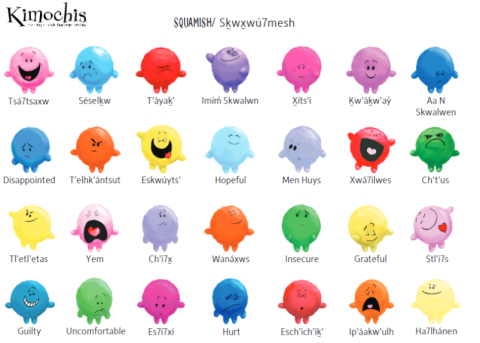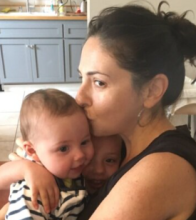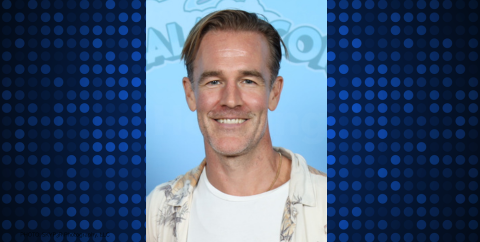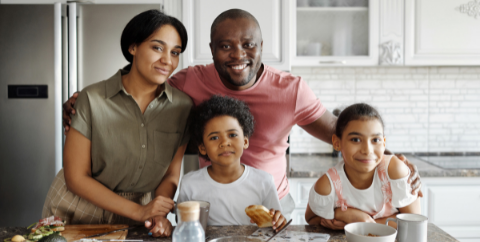Finding a Bright Spot as a young mother with cancer
06 June, 2022
By Haley Pollack, Executive Director and Co-Founder of Bright Spot Network
In November 2018, I had just returned to work from my parental leave. Life felt full with two beautiful kids, a satisfying and rewarding job, a strong relationship, and a growing community.
I had a 6-month-old baby and a 3-year-old at home. And yet, something didn’t feel quite right.
Constipation brought me to the doctor’s office, but my doctor sent me for labs. That began a series of tests and more tests, ultimately bringing me to a diagnosis of Stage IIIc colon cancer. I was shocked and scared.
In the moments after my doctor told me that I had cancer, my thoughts turned directly to my kids. How would I tell them? How would I care for them? How would they survive without me?
With my 6-month-old baby, I needed to wean. I was lucky that I had the time between surgery and chemotherapy to stop nursing (like so many other parents who need to stop immediately to start treatment). Still, nursing was a sweet and comforting time of connection for both of us.
A friend suggested that I talk to my baby about weaning and my cancer. Honestly, it felt silly but what I found was that it was therapeutic for me. I told her about my cancer, lifting restrictions due to surgery, and how I would be tired after my infusions. I think, between hearing my voice and the care that was embedded in it, it was therapeutic for her too.
As much as I wanted to shield my older daughter from my diagnosis and what was to come, I knew that my work as a parent was actually to help walk her through my cancer and treatment, to help give her the necessary social and emotional tools to handle this situation, even if it remained terribly difficult.

I was worried that I might tell her something at 3 years old that would make her more scared. The thing is, between not going to work and all the hushed talk at home, she knew something was up. We had to talk to her and so we did.
We called my cancer “cancer” and told her that I needed it taken out of my belly and that then I would get medicine so strong it was going to make me feel sick before it made me feel better. What was most important for us was being open to talk and creating a space for her to come back for questions, which she did.
Those months of surgeries and chemo were impossibly difficult but talking to my kids about my cancer was the hardest thing I had to do.
Parenting with cancer can be really, really hard. No one can make it easier but here are some simple tips to help you as you parent with cancer or support someone who is in this situation.
- Talk to your kids about your cancer in age-appropriate language. They are smart and if you don’t talk to them, they’ll fill in the gaps with their own imagination… which might be even more scary than anything happening at home.
- Talk about feelings. There are great books to help kids talk about feelings. Check out The Feeling Book or In My Heart: A Book about Feelings. I also am a big fan of Kimochis as a way to help kids navigate their emotions. Helping kids identify their feelings is something that will help them cope with your cancer with more ease, no matter how difficult it might be for everyone, but it will also help them to navigate hard things that come their way for the rest of their lives.
- Read books about cancer. There are a lot of great books about cancer. Books are great because they help you do some of the really hard work of explaining what is happening, whether it is cancer biology, treatment side effects, or just a place to tell them how much you love them. I love Cancer Party and I Have a Question About Cancer. Books are simply a great place to start the conversation.
- Rely on your community. I know that when I was in the thick of chemotherapy side effects and a 3-year-old being a “threenager,” my friends, family, and larger community were my everything. It can be hard to ask for help not just because we are proud or stubborn, but also because we have too much going on to think of asking the teenager next door to walk the dog or a neighbor to help with trash. Make a list of all the things that need to get done and see what you can delegate.
- Be easy on yourself. You’ll need to talk to your kids more than once and you might cry. You may be tired and will probably give your kids mac ‘n’ cheese (or as my kids call it “Mama’s Special”) more than you’d like. What’s important is that you show them you care for them, in the way only you know how to do.

Most of all, hug your little ones – with your arms or your words – let them know that you love them. It’s good for them and good for you too.
Haley Pollack is the Executive Director and Co-Founder of Bright Spot Network. A national organization dedicated to supporting families where a parent or primary caregiver has cancer and is raising young kids.
You May Also Like

Colorectal cancer is increasing among young people, as James Van Der Beek’s death reminds us – cancer experts explain ways to decrease your risk
02.17.2026
An increasing number of people are

New BRFSS data shows Nevada improving in cancer screening
01.29.2026
New data was recently published in the CDC's Behavioral Risk Factor Surveillance System, a phone survey of Americans covering a variety of health

2026 Colorectal Cancer Awareness Resources
01.29.2026
Colorectal cancer is the #2 cancer killer in Nevada by total numbers, only behind lung cancer.